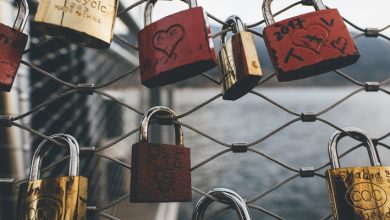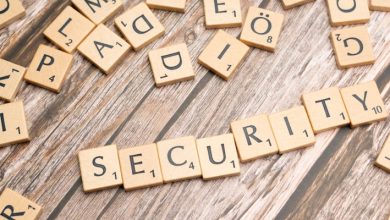How to Secure Your Crypto Wallet: Best Practices

- Understanding the importance of securing your crypto wallet
- Choosing the right type of crypto wallet for maximum security
- Creating a strong password and using two-factor authentication
- Backing up your crypto wallet: Why it’s crucial and how to do it
- Protecting your private keys from hackers and scams
- Staying vigilant: Common security threats to watch out for in the crypto space
Understanding the importance of securing your crypto wallet
Understanding the significance of safeguarding your cryptocurrency wallet is crucial in ensuring the security of your digital assets. By taking proactive measures to protect your wallet, you can mitigate the risk of unauthorized access and potential loss of funds.
One key aspect of securing your crypto wallet is to use a strong and unique password. Avoid using easily guessable passwords or reusing passwords from other accounts, as this can make it easier for hackers to gain access to your wallet. Consider using a password manager to generate and store complex passwords securely.
Another important step is to enable two-factor authentication (2FA) whenever possible. This adds an extra layer of security by requiring a second form of verification, such as a code sent to your mobile device, in addition to your password. This can help prevent unauthorized access even if your password is compromised.
Regularly backing up your wallet is also essential in case of hardware failure or loss of access. Make sure to store your backup in a secure location, such as a hardware wallet or encrypted USB drive, and test the restoration process to ensure it works properly.
Avoid sharing sensitive information about your wallet, such as private keys or recovery phrases, with anyone else. Keep this information confidential and secure to prevent unauthorized access to your funds. Be cautious of phishing attempts and only interact with reputable sources when managing your cryptocurrency.
By following these best practices and staying informed about the latest security threats, you can help protect your crypto wallet and safeguard your digital assets for the long term. Prioritizing security measures can provide peace of mind and ensure that your investments remain safe and secure.
Choosing the right type of crypto wallet for maximum security
When it comes to safeguarding your cryptocurrency assets, choosing the right type of crypto wallet is crucial for ensuring maximum security. There are various options available, each with its own set of features and security measures.
One of the most popular choices is a hardware wallet, which is a physical device that stores your private keys offline. This type of wallet offers the highest level of security as it is not connected to the internet, making it virtually immune to hacking attempts. However, hardware wallets can be more expensive than other options and may not be as convenient for frequent trading.
Another option is a paper wallet, which involves printing out your private keys and storing them in a secure location. While this method is cost-effective and not vulnerable to online attacks, it is susceptible to physical damage or loss. It is essential to keep your paper wallet in a safe place and ensure it is not exposed to moisture or other elements that could degrade the paper over time.
For those who prefer a more convenient solution, a software wallet may be the way to go. These wallets are digital applications that can be accessed on your computer or mobile device. While software wallets are easier to use and more accessible for everyday transactions, they are more susceptible to cyber attacks. It is crucial to choose a reputable software wallet provider and enable additional security features such as two-factor authentication to enhance the protection of your funds.
Ultimately, the best choice of crypto wallet will depend on your individual needs and preferences. Whether you opt for a hardware, paper, or software wallet, it is essential to prioritize security by following best practices such as keeping your private keys secure, enabling additional security features, and regularly updating your wallet software. By taking these precautions, you can minimize the risk of unauthorized access to your cryptocurrency assets and enjoy peace of mind knowing that your funds are safe and secure.
Creating a strong password and using two-factor authentication
When it comes to securing your crypto wallet, creating a strong password and using two-factor authentication are crucial steps to protect your funds from unauthorized access.
First and foremost, make sure to create a password that is unique and complex. Avoid using easily guessable information such as your name, birthdate, or common words. Instead, opt for a combination of letters (both uppercase and lowercase), numbers, and special characters. This will make it much harder for hackers to crack your password.
Additionally, enabling two-factor authentication adds an extra layer of security to your crypto wallet. This means that even if someone manages to obtain your password, they would still need a second form of verification to access your account. This could be a code sent to your phone, a fingerprint scan, or a hardware token.
Overall, taking these precautions will greatly reduce the risk of unauthorized access to your crypto wallet and help keep your funds safe and secure.
Backing up your crypto wallet: Why it’s crucial and how to do it
Backing up your crypto wallet is a crucial step in ensuring the security of your digital assets. In the event of a hardware failure, loss, or theft of your device, having a backup of your wallet will prevent you from losing access to your funds.
One way to back up your crypto wallet is by using a hardware wallet. Hardware wallets are physical devices that store your private keys offline, making them less susceptible to hacking or cyber attacks. By backing up your wallet on a hardware device, you can rest assured that your funds are safe and secure.
Another way to back up your crypto wallet is by using a paper wallet. A paper wallet is a physical document that contains a copy of your private keys. By printing out your private keys and storing them in a secure location, you can easily retrieve your funds in case your digital wallet is compromised.
It’s important to remember that backing up your crypto wallet is not a one-time task. You should regularly update your backup to include any new transactions or changes to your wallet. By staying proactive and vigilant in backing up your wallet, you can minimize the risk of losing access to your funds.
Protecting your private keys from hackers and scams
Protecting your private keys is crucial in safeguarding your crypto assets from hackers and scams. Private keys are essentially the passwords that allow you to access and manage your cryptocurrencies. Here are some best practices to help you keep your private keys secure:
- Never share your private keys with anyone, no matter how trustworthy they may seem. Keep them confidential at all times.
- Avoid storing your private keys on your computer or any online platform that is connected to the internet. Instead, consider using a hardware wallet to store them offline.
- Make sure to regularly backup your private keys and store them in a secure location. This will ensure that you can still access your funds even if you lose your primary storage device.
- Be cautious of phishing scams that attempt to trick you into revealing your private keys. Always double-check the authenticity of any website or email asking for your private key information.
- Consider using a multi-signature wallet, which requires multiple private keys to authorize a transaction. This adds an extra layer of security to your crypto assets.
By following these best practices, you can minimize the risk of your private keys falling into the wrong hands and protect your cryptocurrency investments from potential threats.
Staying vigilant: Common security threats to watch out for in the crypto space
When it comes to securing your crypto wallet, staying vigilant is key. There are several common security threats that users should be aware of in the crypto space. By being informed and proactive, you can better protect your assets from potential risks.
- Phishing scams: Be cautious of emails, messages, or websites that ask for your personal information or login credentials. These could be phishing attempts by malicious actors trying to steal your crypto.
- Malware attacks: Install antivirus software on your devices and be wary of downloading any suspicious files or programs that could infect your system and compromise your wallet security.
- Public Wi-Fi risks: Avoid accessing your crypto wallet on public Wi-Fi networks, as they may not be secure and could expose your sensitive information to hackers.
- Social engineering tactics: Be cautious of individuals or groups trying to manipulate you into revealing your private keys or other confidential data. Always verify the identity of the person or organization you are dealing with.
- Exchange hacks: Choose reputable cryptocurrency exchanges with strong security measures in place to minimize the risk of your funds being compromised in a hack.
By staying informed about these common security threats and taking proactive steps to protect your crypto wallet, you can enhance the security of your assets and reduce the risk of falling victim to malicious activities in the crypto space.



